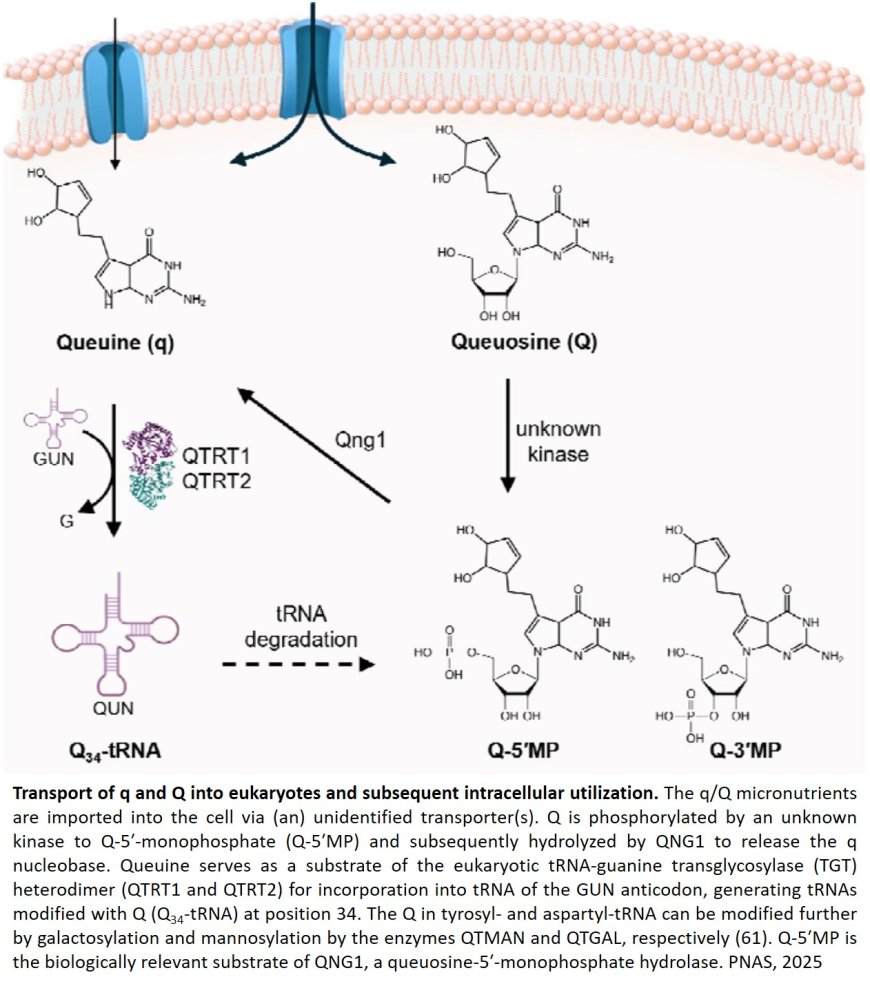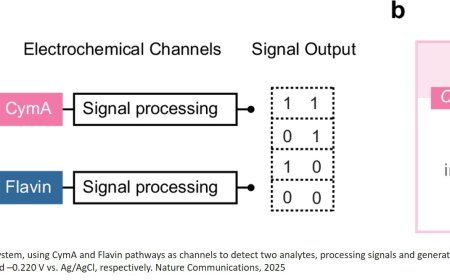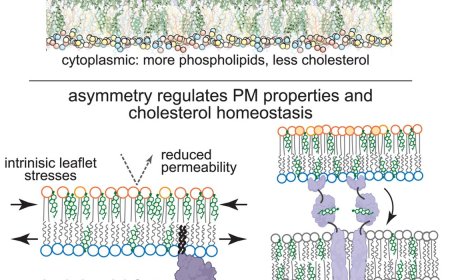How micronutrients taken up by our body

An international team of scientists has cracked a decades-old mystery in human biology: how our bodies absorb a micronutrient that we rely on for everything from healthy brain function to cancer defense.
Queuosine – pronounced “cue-o-scene” – is a vitamin-like micronutrient that we can't make ourselves but can only get from food and our gut bacteria. It’s vital to our health, yet its importance went unnoticed for decades.
Now, in a study published in the Proceedings of the National Academy of Sciences, researchers have discovered the gene that allows queuosine to enter the cells, a discovery that opens the door for potential therapies to be created to leverage the micronutrient’s role in cancer suppression, memory and how the brain learns new information.
“For over 30 years, scientists have suspected that there had to be a transporter for this nutrient, but no one could find it,” said one of the study’s principal investigators. “We’ve been hunting for it for a long time. This discovery opens up a whole new chapter in understanding how the microbiome and our diet can influence the translation of our genes.”
Queuosine modifies the molecules that help make proteins, called transfer RNA, which is essential in decoding your body’s DNA.
“It’s like a nutrient that fine-tunes how your body reads your genes,” the author said. “The idea that this small compound, which people have barely heard of, plays such an important role, is fascinating.”
The gene that allows access to the cell has also been shrouded in medical mystery. The identification of the long-sought gene, SLC35F2, lays the groundwork for future studies that could lead to new medications, given that the gene has previously been studied regarding how viruses and cancer drugs get into cells, but scientists didn’t know what the gene did in a healthy body until now, the author said.
“We have known for a long time that queuosine influences critical processes like brain health, metabolic regulation, cancer and even responses to stress, but until now we haven’t known how it is salvaged from the gut and distributed to the billions of human cells that take it in,” said a joint senior author of the article.
Queuosine is a microscopic molecule first discovered in the 1970s, but for years its role in human health flew under the radar until recently, and researchers from across the world involved in this study hope others take notice about this micronutrient’s role in the body’s bigger health picture.













